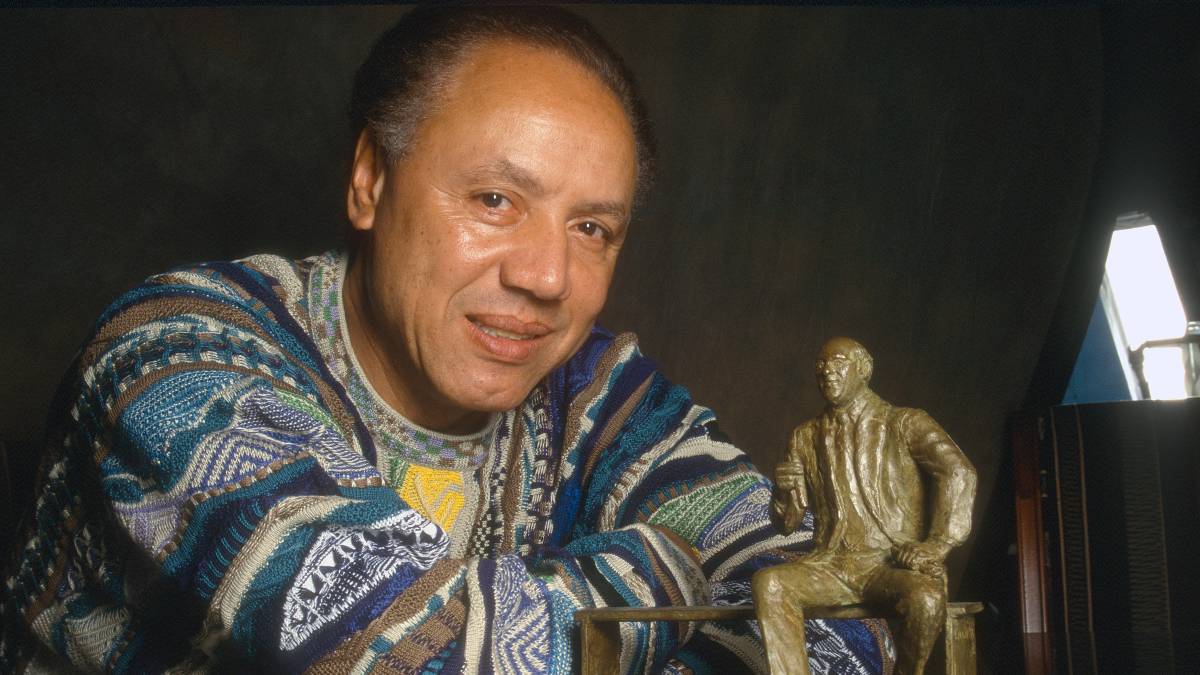Lenny Wilkens, who passed away at the age of 88, was an NBA game-changer as both a player and a head coach.
Per the Seattle Times, NBA legend Lenny Wilkens, once the all-time winningest head coach in league history, has passed away at the age of 88. The report from Tim Booth states that Wilkens passed away at his Medina, Washington home on Sunday, but the cause was not disclosed.

“Lenny Wilkens represented the very best of the NBA, as a Hall of Fame player, Hall of Fame coach, and one of the game’s most respected ambassadors,” NBA commissioner Adam Silver said in a Sunday statement. “[F]our years ago, Lenny received the unique distinction of being named one of the league’s 75 greatest players and 15 greatest coaches of all time.
“But even more impressive than Lenny’s basketball accomplishments, which included two Olympic gold medals and an NBA championship, was his commitment to service, especially in his beloved community of Seattle where a statue stands in his honor. He influenced the lives of countless young people as well as generations of players and coaches who considered Lenny not only a great teammate or coach, but also an extraordinary mentor who led with integrity and true class.”
Born in Brooklyn, Wilkens originally made a name for himself at Boys (Brooklyn, N.Y.) as one of the many All-Americans from that high school in the 1950s and 1960s to matriculate to the NBA. He was an All-American at Providence College, guiding the Friars to the NIT final in 1960 despite playing but one season of high school basketball in the Bedford-Stuyvesant in Brooklyn. The St. Louis Hawks made him the sixth overall pick in the ensuing NBA Draft after he departed Rhode Island as the second-leading scorer in program history.
Wilkens would spend eight seasons in St. Louis, bookending his tenure with an appearance in the 1961 NBA Finals and a runner-up finish to Wilt Chamberlain in the 1968 MVP vote. He was also named to six NBA All-Star Games as a Hawk and continues to rank fifth in franchise history in assists.
Wilkens was traded to the Seattle SuperSonics in 1968 and became a Pacific Northwest icon. He was one of the last player-coaches in Association history, filling both roles in some of the earliest days of the Seattle franchise. Though the Sonics did not reach the playoffs in his four years in the dual role, Wilkens reached three more All-Star Games (winning the MVP award of the 1971 exhibition) and led the league in assists in 1970. Wilkens would play three more seasons between the Cleveland Cavaliers and Portland Trail Blazers, once again serving as the player-coach during his final season with the latter in 1974-75.
At the time of his departure from the court, Wilkens was second all-time in assists behind only Oscar Robertson. The No. 19 he wore with the SuperSonics is one of seven retired by the franchise, now known as the Oklahoma City Thunder. To this day, Wilkens appears in the Sonics/Thunder franchise’s all-time top 10 in assists, free throws, and triple-doubles. More recently, Wilkens appeared on both the 50th and 75th anniversary teams revealed by the NBA in 1996 and 2021, respectively. He would be inducted into the Naismith Memorial Basketball Hall of Fame for his sneakered efforts in 1989.
Following retirement from the floor, it didn’t take long for Wilkens to leave his mark in the coaching game: he kept his head coach role with the Blazers for one more season before donning a suit for Seattle 22 games into the 1977-78 campaign.
Guiding a team led by future Hall-of-Famers Dennis Johnson and Jack Sikma, Wilkens helped the SuperSonics recover from a 5-17 start that led to the ousting of prior boss Bob Hopkins to reach the 1978 NBA Finals. Though the Sonics fell to the Washington Bullets in seven games, they stand as the only team in NBA history to win five or fewer games in their first 22 entries and still reach the last round.
Wilkens and the Sonics would take revenge in the following year, posting a 52-30 record before once again facing the Bullets in the Finals. Behind an MVP effort from Johnson, the Sonics took the five-game series to give Seattle its first title in the four commonly-accepted major four North American sports leagues (NBA, MLB, NFL, NHL) since the defunct Seattle Metropolitans won the 1917 Stanley Cup Final. It proved to be the first and only championship the franchise would win in its SuperSonics incarnation before the Thunder prevailed last season.
Eight seasons in Seattle yielded 478 wins for Wilkens, who still stands as the all-time winningest coach in the history of the Sonics/Thunder. His next stop was a seven-season return to Cleveland, where he also stands as the all-time winningest boss. His top mark with the Cavs was the 1991-92 campaign, where he guided the Cavs to a then-franchise record 57 wins and their first showing in the Eastern Conference Finals.
Following his resignation from the Cavaliers in 1993, another reunion awaited Wilkens, as he returned to the Hawks long after their transfer to Atlanta. With a 14-win improvement from the prior year (setting another then-franchise record with 57), Wilkens guided the Hawks to the top seed in the East and earned himself Coach of the Year honors.
Though his seven-year term was bittersweet (never advancing past the second round of the playoffs), it did feature his record-breaking 939th career win as an NBA head coach, passing Red Auerbach for the most in league history. Upon doing do with, ironically enough, a win over the Bullets in January 1995, Wilkens commemorated the triumph by lighting a cigar to emulate Auerbach’s traditional celebration when he coached the Boston Celtics.
Wilkens currently ranks third on the all-time wins list, having been passed by only Gregg Popovich and Don Nelson. That trio stands as the only men to win at least 1,000 games as an NBA head coach. Atlanta also hosted another one of Wilkens’ most prestigious triumphs, as he was the head coach for the United States’ men’s national team’s run to a gold medal in the 1996 Summer Olympics hosted in the city. Wilkens was also an assistant coach for Team USA under Chuck Daly during the 1992 Games in Barcelona, partly supervising the group commonly referred to as the “Dream Team.”
Inducted into the Hall of Fame as a coach in 1998, Wilkens continued coaching into the new century: he served three seasons (1999-2002) at the helm of the Toronto Raptors, notably guiding the team to its first playoff series victory in 2001 before spending parts of two seasons in the same role with the New York Knicks. Wilkens also briefly served in the SuperSonics’ front office shortly before they moved to Oklahoma City after his final coaching gig.
Other Wilkens accolades include four invites to coach in the NBA All-Star Game and another Hall of Fame invite in 2010 for his efforts with the Dream Team. Wilkens was also inducted into the College Basketball Hall of Fame’s inaugural class in 2006. Furthermore, Wilkens is one of five men inducted into the Naismith Memorial Basketball Hall of Fame as both a player and coach next to Tommy Heinsohn, Bill Russell, Bill Sharman, and John Wooden. A statue in Wilkens’ likeness was erected in Seattle in June, standing in front of Climate Pledge Arena, home of the WNBA’s Seattle Storm.
Wilkens is survived by his Marilyn and their children Jamee, Leesha, and Randy, as well as seven grandchildren.
Geoff Magliocchetti is on X @GeoffJMags
Editor's Pick
 Preseason 2025-26 FAB 50: Top 15 Teams!
Preseason 2025-26 FAB 50: Top 15 Teams!